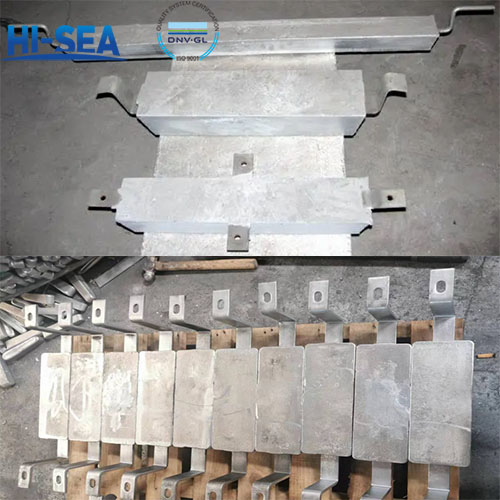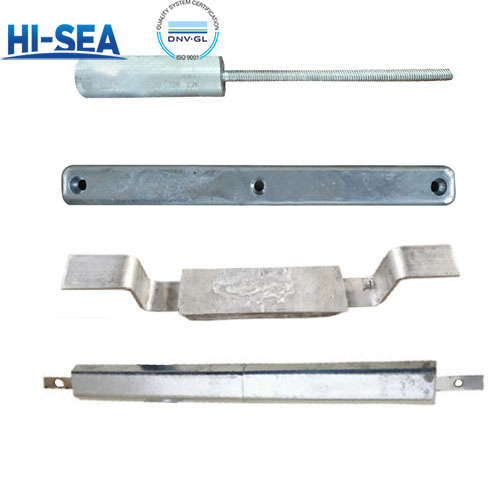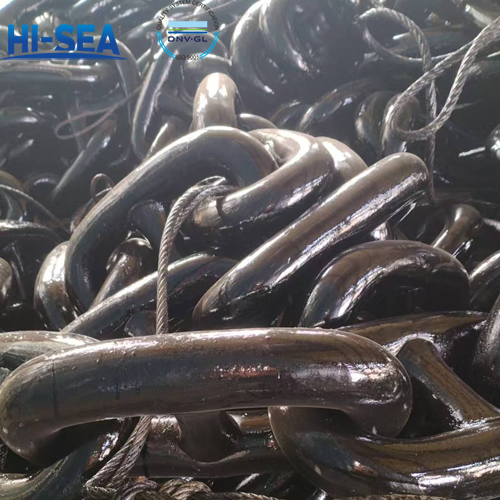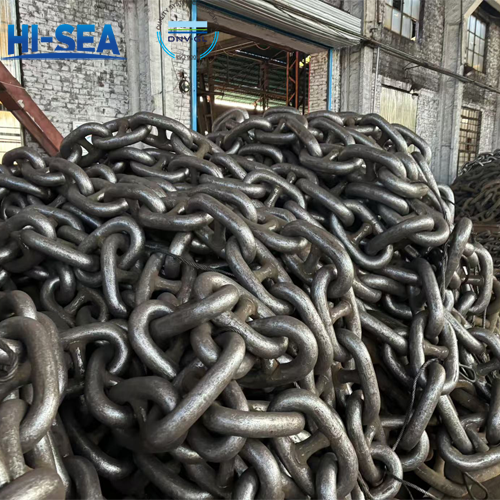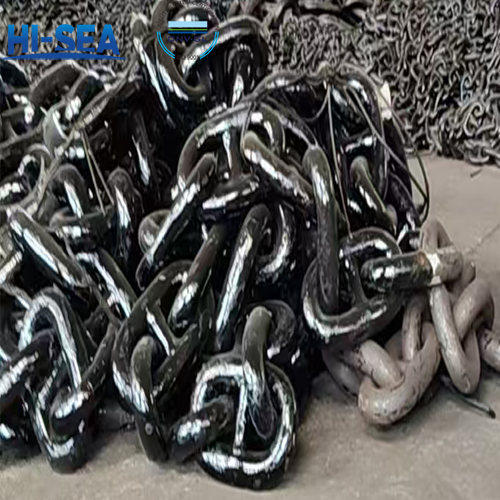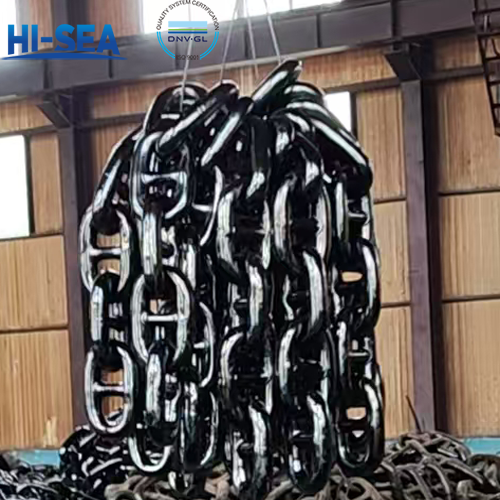
Marine Anti-corrosion Zinc Anode
Marine anti-corrosive zinc anodes are usually installed on the bottom and side of the hull and protect the rest of the hull from corrosion by forming an electrochemical reaction with other metal components on the hull, which focuses the impact of corrosion on the anode. This anticorrosive zinc anode has good corrosion resistance in seawater, which can effectively extend the service life of ships and reduce maintenance costs and repair frequency.
Overview
Principle of operation
Zinc anodes protect the hull of a ship by the principle of electrochemical corrosion. Since the electrode potential of zinc is more negative than that of steel, when it is exposed to an electrolyte (e.g. seawater) together with steel, the zinc corrodes as an anode while the steel becomes the cathode and is protected. This type of protection is known as Cathodic Protection.
Electrochemical Reaction
Zn→Zn2++2e-
Protection Process
Zinc (anode) corrodes, releasing electrons.
Electrons flow through the circuit to the steel (cathode), preventing it from corroding.
Fields of application
Ship hull: Used to protect the underwater parts of the ship (bottom, hull, etc.) from seawater corrosion.
Marine platforms: Used to protect marine oil and gas platforms, floating equipment, etc.
Port facilities: to protect port facilities such as wharves, buoys, breakwaters, etc.
Submarine pipeline: used for the anti-corrosion of submarine oil pipeline, natural gas pipeline, etc.
Picture of Marine Anti-corrosion Zinc Anode
